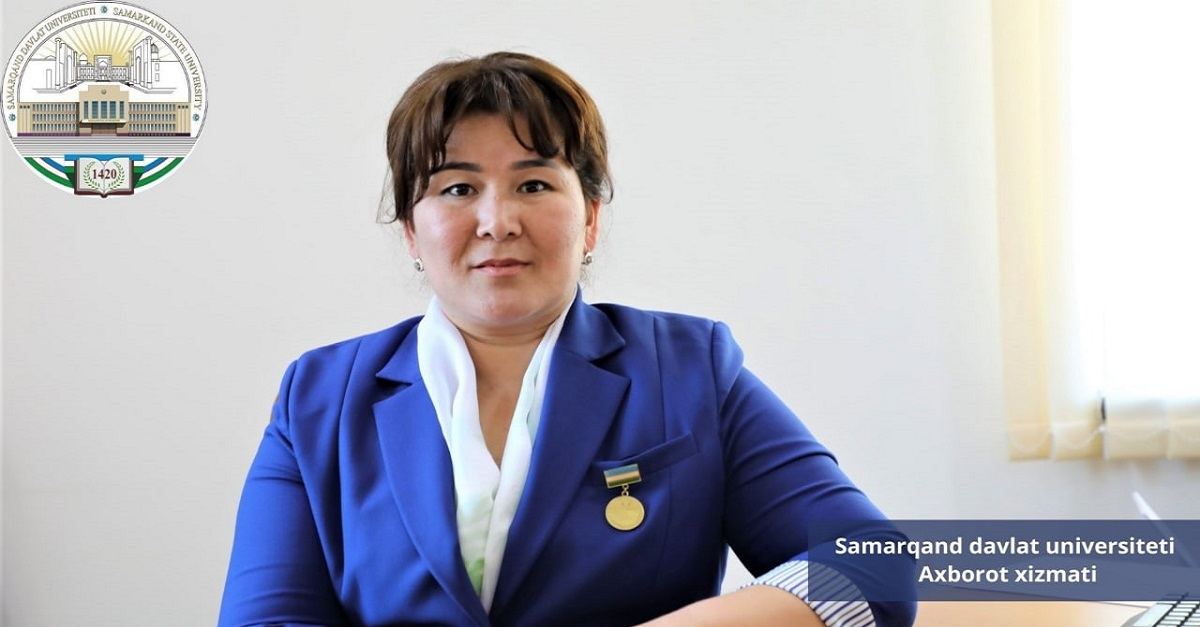Analytical reading is the basis of interactive learning (is it?)

Makhliye Dzhakbarova, a master student at the Faculty of Philology of Samarkand State University, is conducting a research on the topic "Analytical reading as the basis of interactive learning." The researcher published about 10 articles on this topic in leading scientific journals in Poland, Russia, Kazakhstan and our country. Scientific adviser - Professor Ibodulla Mirzaev, head of the Department of Methods of Teaching the Uzbek Language and Literature.
Makhliyo Dzhakbarova is the author of a number of methodological recommendations, 3 methodological manuals. She became the winner of the 2019 Science Teacher of the Year competition by participating in seminars and master classes organized under the STEAM approach and the international assessment program. Awarded with the badge "Excellence in Public Education" in 2020 for merits and worthy pedagogical service. The course "Analysis of the Poetry of Saida Zunnunova" was popularized throughout the country on the recommendation of the Ministry of Public Education. She also placed 3rd in the Woman of the Year competition.
“Analytical reading, unlike other disciplines, is an important step in philological education – expressive reading of a text using explanatory and etymological dictionaries, learning the language and literary analysis,” Makhliye Dzhakbarova said. - The essence of the subject "Analytical reading" is that at the philological faculties of higher educational institutions, students have the opportunity to study both language and literature in one session. The introduction of analytical reading into the system of general secondary education will largely contribute to the development of the native language and literary education. Future philologists need to thoroughly and holistically master both the language and literature, since a specialist who graduated from a university and entered a school or even an educational institution equally teaches his native language and literature.
Simply put, analytical reading is explained by a combination of interactive language and literature, the formation of deep philological knowledge of both the student and the teacher, and a detailed study of the text based on dictionaries. Thus, the ability of the student to express speech is clearly demonstrated. You will have the opportunity to apply your previous knowledge and skills in the language. When analyzing literary texts, the commonality of language and literature is revealed. A learner or student who regularly engages in text analysis will increase their vocabulary and improve their oral and written communication. Analytical reading can be more practical and can develop the necessary conversational skills in a future teacher or researcher.
Iroda Bekmurodova,
Samarkand State University
Information Service Officer.
Photo by Shavkat Akramov.

